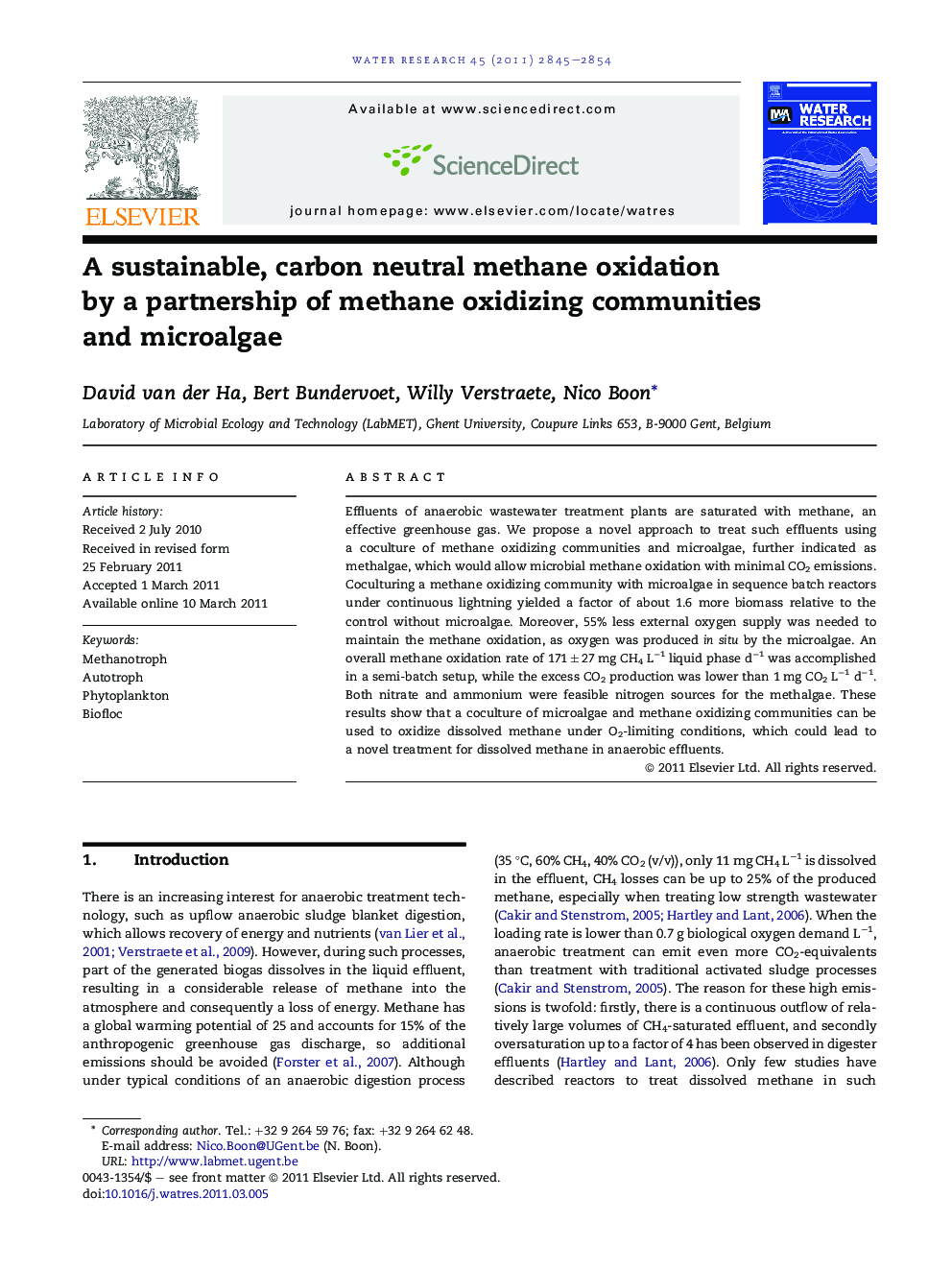| Article ID | Journal | Published Year | Pages | File Type |
|---|---|---|---|---|
| 4483437 | Water Research | 2011 | 10 Pages |
Effluents of anaerobic wastewater treatment plants are saturated with methane, an effective greenhouse gas. We propose a novel approach to treat such effluents using a coculture of methane oxidizing communities and microalgae, further indicated as methalgae, which would allow microbial methane oxidation with minimal CO2 emissions. Coculturing a methane oxidizing community with microalgae in sequence batch reactors under continuous lightning yielded a factor of about 1.6 more biomass relative to the control without microalgae. Moreover, 55% less external oxygen supply was needed to maintain the methane oxidation, as oxygen was produced in situ by the microalgae. An overall methane oxidation rate of 171 ± 27 mg CH4 L−1 liquid phase d−1 was accomplished in a semi-batch setup, while the excess CO2 production was lower than 1 mg CO2 L−1 d−1. Both nitrate and ammonium were feasible nitrogen sources for the methalgae. These results show that a coculture of microalgae and methane oxidizing communities can be used to oxidize dissolved methane under O2-limiting conditions, which could lead to a novel treatment for dissolved methane in anaerobic effluents.
► Methanotrophs and microalgae were cocultured for treatment of dissolved methane. ► Algae provided the necessary oxygen for the methane oxidation process. ► Methane oxidation was possible without overall release of carbon dioxide. ► Almost all carbon originating from methane was assimilated into biomass. ► The methanotrophs and microalgae grew together in bioflocs.
